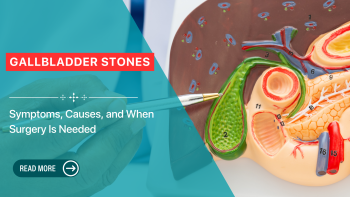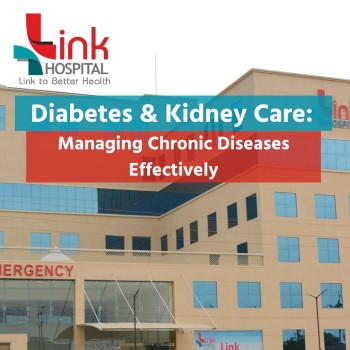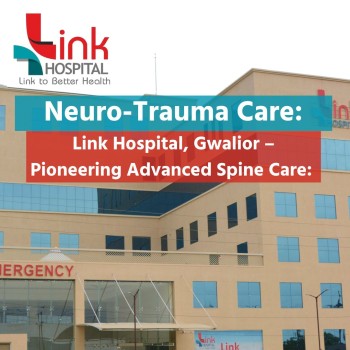World
Meningitis Day, observed annually on 5th October, is
dedicated to raising global awareness about meningitis, a serious and
potentially life-threatening infection that affects the membranes surrounding
the brain and spinal cord. This day is an opportunity to educate people about
the symptoms, dangers, and prevention of meningitis while promoting the
importance of timely medical intervention.
Meningitis can be caused by bacteria,
viruses, fungi, or parasites, but viral and bacterial meningitis are the most
common types. While viral meningitis is usually less severe, bacterial
meningitis can lead to devastating complications, including brain damage,
hearing loss, and death. World Meningitis Day encourages individuals,
healthcare providers, and policymakers to come together to fight this deadly
disease.
What Is Meningitis?
Meningitis is an inflammation of the protective membranes called meninges, which cover the brain and spinal cord. This inflammation can be caused by various pathogens, including bacteria, viruses, fungi, or parasites. Bacterial meningitis, in particular, is a medical emergency that requires prompt treatment to prevent serious complications or death.
Types of Meningitis:
- Bacterial Meningitis:
The most severe form of meningitis, bacterial meningitis, can cause long-term complications or death if not treated immediately. It is often caused by bacteria such as Neisseria meningitidis, Streptococcus pneumoniae, and Haemophilus influenzae. Vaccination is crucial in preventing many forms of bacterial meningitis. - Viral Meningitis:
While viral meningitis is generally less severe than bacterial meningitis, it can still cause discomfort and requires medical attention. Enteroviruses are the most common cause of viral meningitis. Most people recover from viral meningitis without treatment, but it can lead to complications, particularly in individuals with weakened immune systems. - Fungal Meningitis:
Fungal meningitis is rare but can occur in people with weakened immune systems. It is typically caused by inhaling fungal spores, and the symptoms can develop slowly. - Parasitic Meningitis:
Caused by parasites, this form of meningitis is rare but can be life-threatening. It is usually contracted through contaminated water or food.
Symptoms of Meningitis
Recognizing the symptoms of meningitis
early can save lives. The symptoms may appear suddenly and can vary depending
on the type of meningitis, but common warning signs include:
●
Severe headache
●
Fever
●
Stiff neck
●
Sensitivity to light (photophobia)
●
Nausea and vomiting
●
Confusion or difficulty
concentrating
●
Seizures
●
Sleepiness or difficulty waking up
●
Rash (in cases of bacterial
meningitis)
In infants, the symptoms may include irritability, poor feeding, a high-pitched cry, and a bulging fontanelle (the soft spot on a baby’s head).
Why Awareness Matters
Meningitis is a serious public health
issue that requires global attention. Despite advances in vaccination and
treatment, bacterial meningitis still causes hundreds of thousands of deaths
each year, particularly in low-income regions with limited access to
healthcare. Many survivors are left with long-term disabilities such as hearing
loss, neurological damage, and limb amputations.
Raising awareness on World Meningitis Day
can help reduce the burden of this disease by educating the public about
prevention, vaccination, early detection, and the importance of seeking
immediate medical attention when symptoms arise.
Prevention and Vaccination
Prevention is the most effective way to
protect against meningitis. Vaccination is a critical tool in preventing
bacterial meningitis, and several vaccines are available that protect against
different strains of bacteria responsible for the disease.
●
Meningococcal Vaccines: Protect against Neisseria meningitidis, a leading cause
of bacterial meningitis.
●
Pneumococcal Vaccines: Protect against Streptococcus pneumoniae, another common
cause of bacterial meningitis.
●
Haemophilus influenzae Type B (Hib) Vaccines:
Prevent infections caused by Haemophilus
influenzae, particularly in young children.
In addition to vaccination, practising
good hygiene, such as regular handwashing, can help prevent the spread of
viruses and bacteria that cause meningitis.
Early Diagnosis and Treatment
Meningitis is a medical emergency, and
timely diagnosis and treatment are crucial. Bacterial meningitis, in
particular, requires immediate antibiotic treatment. If left untreated, the
infection can rapidly progress, leading to severe complications or death. Early
intervention can significantly improve the chances of recovery and reduce the
risk of long-term disabilities.
Link Hospital in Gwalior:
Leading in Meningitis Care and Prevention
When it comes to diagnosing and treating
meningitis, Link Hospital in Gwalior
offers state-of-the-art medical care and expertise. The hospital is equipped
with advanced diagnostic facilities and a dedicated team of healthcare
professionals to manage meningitis cases and prevent its devastating
consequences.
- Expert Diagnosis and
Treatment
At Link Hospital, prompt and accurate diagnosis is the top priority. The hospital provides rapid testing and diagnostic services to detect the presence of meningitis-causing pathogens. With a team of skilled doctors and specialists, the hospital offers comprehensive care to patients with bacterial and viral meningitis, ensuring the best outcomes for recovery. - Vaccination Programs
Link Hospital is committed to preventing meningitis through vaccination. The hospital provides access to essential vaccines, including meningococcal, pneumococcal, and Hib vaccines, for both children and adults. The vaccination program helps protect the community from the risk of bacterial meningitis and promotes public health. - Public Health Education
Raising awareness about meningitis and its prevention is a key focus at Link Hospital. The hospital conducts regular awareness programs, health camps, and educational initiatives to inform the public about the importance of vaccination, recognizing symptoms, and seeking immediate medical care in case of meningitis. - Comprehensive
Post-Treatment Care
Recovering from meningitis can be challenging, especially for patients who experience long-term complications. Link Hospital provides rehabilitation services, follow-up care, and counselling to support patients and their families through recovery.
Conclusion
World Meningitis Day serves as a reminder
of the urgent need to fight meningitis through awareness, prevention, and
timely medical care. Educating the public and promoting vaccination can
reduce the global burden of this life-threatening disease.
Link
Hospital in Gwalior is dedicated to safeguarding the community's health by providing expert care, offering vaccinations, and
raising awareness about meningitis. On this World Meningitis Day, let’s take
the opportunity to protect ourselves and our loved ones by staying informed,
getting vaccinated, and seeking immediate medical attention when needed.
Together, we can create a safer,
healthier future free from the devastating impact of meningitis.










